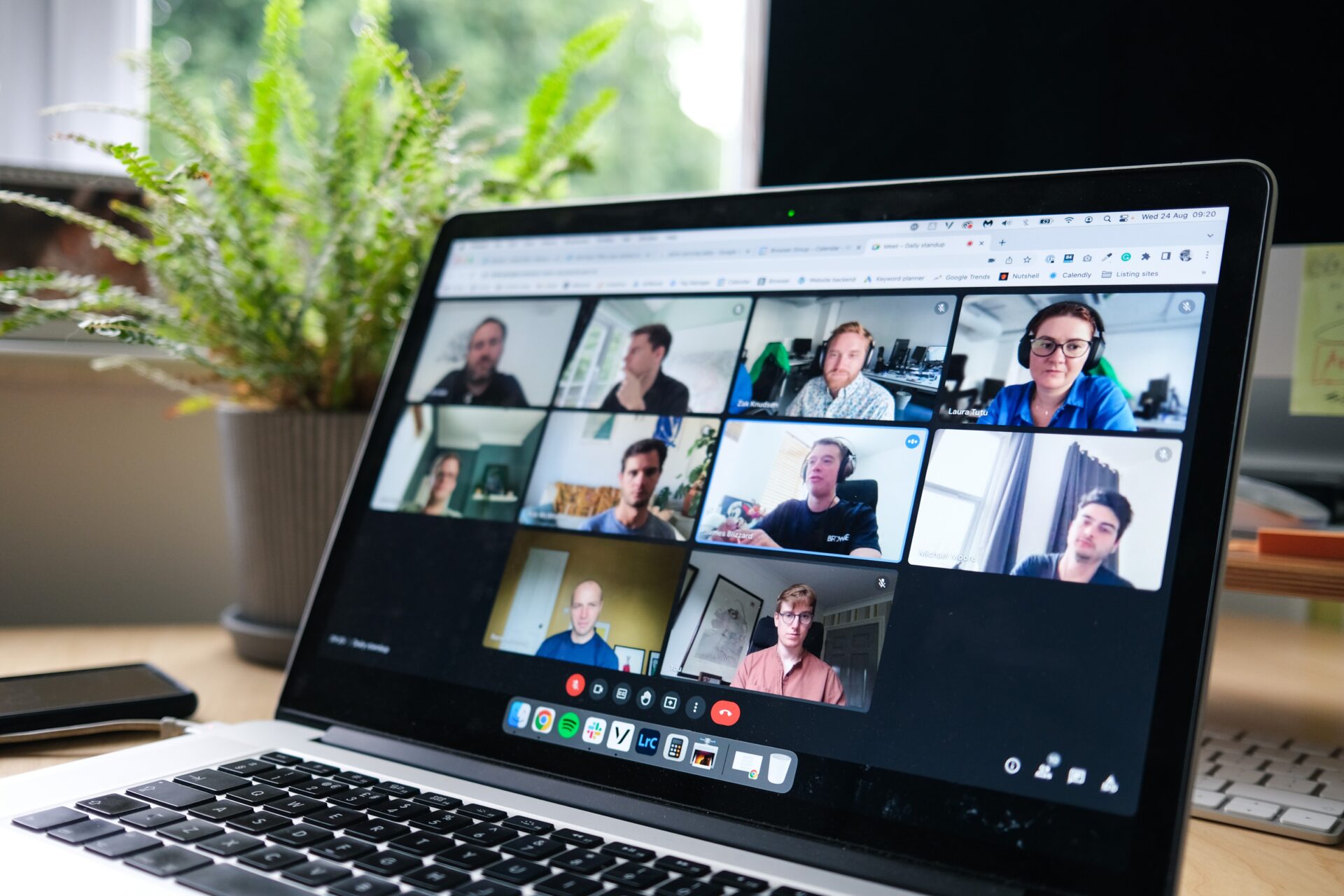Listen And You Might Learn Something

I had heard the phrase ‘active listening’ in conversations and glimpsed references to it in the press, but it wasn’t until a few years ago that I began to understand the significance of what it actually meant. A former colleague and respected friend, Lukasz Kujawa, once shared how it transformed his ability to focus and distil conversations.
Inspired by his experience, I decided to take action, and in doing so I learned that active listening is far from an art, moreover, it’s a very powerful skill that you can learn. By becoming a better listener, I learned that you can improve your productivity, as well as your ability to influence, persuade, and negotiate. What’s more, it helped me to avoid conflict and misunderstandings. Conversations simply became easier and, above all else, far more enjoyable.
The starting point
In the connected world we live in, our attention is the currency that big tech trades in, something appropriately highlighted in Netflix’s The Social Dilemma back in 2020, the perpetual thirst for our minds to be stimulated means barely a minute goes by when we’re not looking, listening, playing, talking, reading. Unless the subject has captivated you then by my own admission it’s hard to stay focused, I know I need to write that important email, but I sure do want to check-in if Bitcoin’s still trading at $41k…
These distractions are life and it’s virtually impossible to ignore them.

Over the years I’ve read books on the subject, I’ve watched the TED talks, and I’ve spoken to friends, but none of it worked for me, that is until I discovered a popular lecture by Professor Scott Brueckner from Long Beach City College, his lecture topic was on the subject ‘How To Improve Your Listening Skills‘. As I mentioned previously, the approach was simple, listening wasn’t an art, listening was a skill, and like any skill, practice makes perfect. It’s something that I wanted to improve, with the hope it would improve not just my work-life, or home life, but my general well-being and the way I conducted my activities, be it at an expo lecture, negotiating with a potential client, or simply a new acquaintance.
Akin to my line of work, to find a solution you’ve first got to work out the problem, and as I learned from the lecture, there are three main problems, you may experience one, or all three, or in most cases, it’s a mix, but it’s important to note what they are so you can identify them.
The Problems
First, there’s Pseudo listening, in which you’ll be listening but essentially fake listening, you’ll be nodding your head, agreeing but nothing is actually being processed, and when you walk away from that conversation, if someone asks you how it went, there’s often a mind blank, you simply weren’t in the room. Maybe there’s something else on your mind, you’re thinking about picking the children up from school, or wondering where your counterpart bought that nice pair of shoes from, whatever it is, it has your attention.
A great example of this in interview situations, often you’re thinking about what the interviewer is thinking and what your response will be, what will they think, and what are they thinking right now, all the while you’re not actually listening to what they are saying, at the end of the interview someone asks if you have any questions but your mind is blank.
Secondly, there’s Selective listening in which you only listen to the parts that concern you, maybe you’re an engineer in a technical scoping session, and the look and feel just doesn’t interest you so you swift off, and switch back on when it’s your turn to ask about the technical aspects, of course you don’t know what to ask as you don’t know what’s already been covered in conversation. There are also distractions which force you to switch off, and on, perhaps during a pitch someone’s phone goes off, it breaks your concentration, and now all you can think about is how much it bothered you.
The third is Critical listening, in which you have a preconception prior to listening (criticised), and therefore you’re not really listening to what’s being said, instead you’re preparing your own response. In politics, regardless of where your allegiances lie (if you have any), preconceptions affect the way and what you choose to listen to. If someone turns up late for a meeting, it affects you’re listening, instead of focusing and listening, perhaps you’re agitated that they were late and now it’s distracted you.
The Solutions
These were some of the solutions for me, they didn’t come about overnight, it’s taken me a few years to hone in and distil how my approach to every conversation should unfold. But what’s important is that you acknowledge and take action when you notice some of the problems aforementioned taking shape.
- Firstly, it’s about being aware that these problems exist and noticing them when they arise. You’ve got to know the problems before you can fix them, just having these front of mind when you’re listening means you can put a stop to it.
- Being physically and mentally prepared, how many times have you sat in a meeting around lunchtime and all you can think is what you’re going to get from Pret a Manger? Physically, making sure you’ve had enough sleep the night before helps keep your senses alert, it’s not always that easy say if you’re a new parent, but when I know I need to be sharp before a meeting I often retire about 9:00 pm and for me, it works wonders, I wake up early, I’m motivated and most importantly I’m alert.
- Setting a goal and sticking to it, this means convincing yourself that you’re going to listen and digest with crystal clear focus 100% of the conversation, the reality is you aim to 100% and the reality is you’ll probably get to 80%, but setting this target means you’ve got something to work to.
- Be front and centre. When it comes to a concert, where are the best seats in the house? It’s right at the front, it’s right in the centre, being at the front and centre of a conversation means you’re best situated to capture the conversation, there’s the element of proximity that results in you being right in the line of sight to capture the conversation.
- Pretend to be amazed. Trick your mind into actively focusing by positioning your body in a way that promotes focus. As silly as out sounds if you’re slouching back on your chair then your body is telling your mind to relax, if you’re actively sitting upright and forward, poised like a sprinter at the starting line then your body is telling your mind to be active, to focus. It’s quite simple really the more you think about it.
- And lastly, here’s what’s helped me the most. Practice. As I mentioned before, the more you practice the better you get and you can practise all of the points mentioned above, any time and anywhere by using the technique of dictation, it can also be a fun game to play with your colleagues.
Interestingly Professor Scott also suggested there was a practical task to take away. I tested on my team at the time, and while it was a lot of fun, it also highlighted just how hard listening can be, especially in group situations.

Professor Scott’s practical task went like this:
Ask someone to open up a magazine and take five sentences of increasing length and complexity, and then read them out to you, with a pause after each so that you can write down exactly what you heard. The test is to see if you can dictate verbatim each sentence, the key is that it has to be exactly word-for-word, you only score a point if it’s just that. See how many times you get it right, of course, the sentences have to change each time, but as you practise you’ll notice it becoming easier and easier.
Perhaps try the following, you’ll notice the increasing degree of complexity:
- “I enjoy a cup of hot coffee with milk”
- “There was chaos on the South Beach due to the parking restrictions”
- “Laws to set up Great British Railways are unlikely because the legislation would cover almost all of the rail network.”
- “Alison Lee set a 36-hole scoring record on the Ladies European Tour by carding a second successive 61 at the Team Series in Saudi Arabia.”
With the last one being something similar in length and complexity to:
- “On Monday afternoon we all agreed that are all going to watch Sky News this weekend because that is when the SpaceX rocket launches for the Mars mission”
Final Thoughts
Right now, I would like to think my ability to listen, process, and respond has improved considerably, part of it comes naturally with age, but I believe the steps I’ve followed and put in place have helped significantly.
As strange as it sounds you can train yourself to listen better, and when you can really listen, it improves the way you articulate conversations, you’re able to provide considered answers quicker, but most importantly you’re able to enjoy the art of conversation.
Big thanks for the hero image courtesy of Matt Botsford ❤️